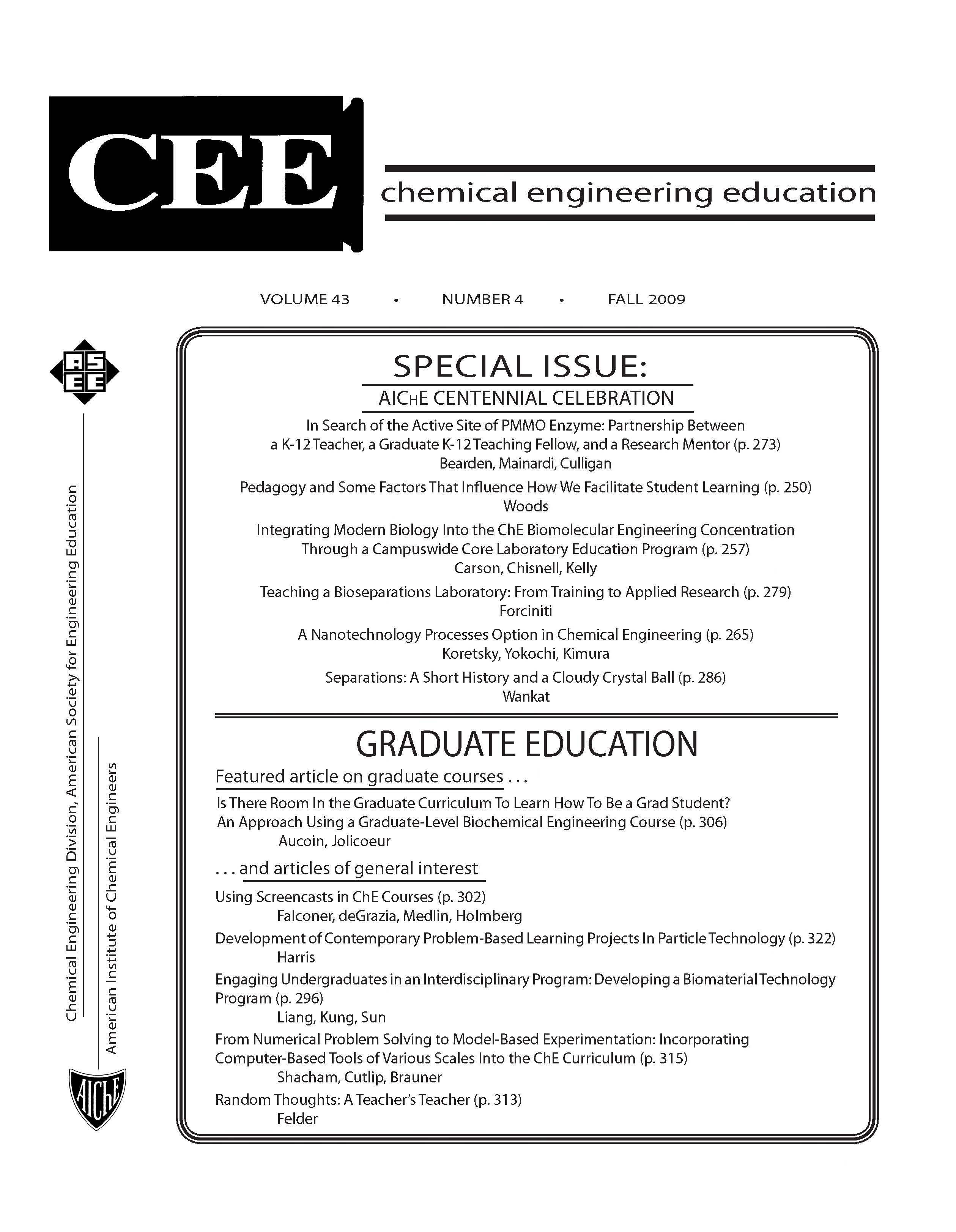From Numerical Problem Solving to Model-Based Experimentation Incorporating Computer-Based Tools of Various Scales Into the ChE Curriculum
Abstract
A continuing challenge to the undergraduate chemical engineering curriculum is the time-effective incorporation and use of computer-based tools throughout the educational program. Computing skills in academia and industry require some proficiency in programming and effective use of software packages for solving 1) single-model, single-algorithm (SMSA) problems, 2) multiple-model, multiple-algorithm (MMMA) problems, and 3) regression and statistical analysis of data. These skills can be introduced into a single course, to be provided early in the curriculum, by the proper selection of common software packages, and by the assignment of representative problems that introduce many chemical engineering principles. Subsequent courses can introduce additional computer-based tools, such as physical property databases, commercial dynamic and steady-state process simulation, optimization and design programs, CFD, and molecular simulation. In addition to exposing the student to the particular tools, pedagogical benefits are obtained when such software is used for virtual experimentation, analysis of cause-effect relationships in complex systems, and visualization of concepts.


